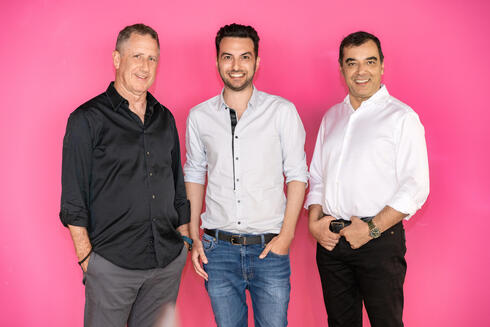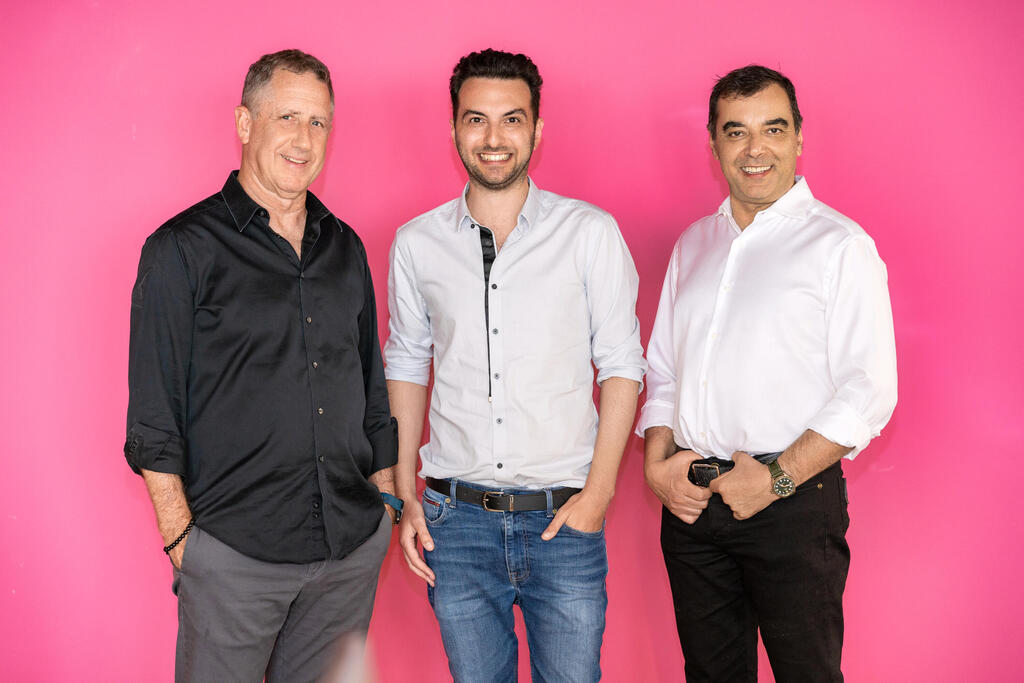
Top 50 Startups List
AI21 Labs: “It’s like the mobile revolution but maybe even bigger"
The explosion of new generation artificial intelligence, with ChatGPT becoming a household name, also boosted the business of AI21 Labs - with Amazon being just one of its new customers
"We live in a new era, there were problems that for 20 years there was no significant progress in solving and suddenly everything works, including things that half a year ago were seen as imaginary," explained Ori Goshen, co-founder and CEO of AI21 Labs.
The dramatic decision by OpenAI to make its conversation model available to users sparked the Generative AI revolution and, above all, made it public.
Calcalist chose to rank AI21 Labs in second place in the list of the most promising Israeli startups even before the company's dramatic announcement a few days later that it would be teaming up with Amazon to launch its Bedrock AI tool. The American giant, lagging behind what Microsoft and Google has already recognized, announced that AI21 will be one of the companies whose AI technology will be integrated into its AWS platforms. In doing so, Amazon joins the race with Microsoft’s investment in OpenAI and Google, which developed its own tool called Bard.
One of the main questions since the world realized the tremendous capabilities of generative AI - and transforming life as we know it - is whether this arena will be exclusively dominated by giant corporations: Google vs. Microsoft vs. Amazon vs. Meta with no breathing space for small players.
1 View gallery


AI21 Labs founders Yoav Shoham (from left), Ori Goshen, and Amnon Shashua.
(Roei Shor)
"There is indeed a very limited number of companies that are really able to play in this arena, and indeed these are mainly the big tech companies," AI21 co-founder Uri Goshen says. “But there is room for several players who are already operating in the field and have the same technological ability as us, such as OpenAI and Anthropic."
According to Goshen, since ChatGPT's breakthrough into everyday life, AI21 has been flooded with inquiries - because every company that wants to secure its future understands that the future includes artificial intelligence. "There isn't a CEO today who hasn't ordered the integration of generative AI elements into the company's systems," he says, "It's like the mobile revolution, and maybe even a bigger revolution."
But if you compare the current revolution to that of the mobile phone, won't there eventually be a controlled standard like an iPhone or a Galaxy?
"No, since the revolution is in software, and there is no logic in there being one dominant player who will control all areas. I believe that there will be specializations, such as AI for the financial world or the legal world, and the market will be decentralized. OpenAI just opened everyone's eyes."
It is no coincidence that Goshen mentions the legal world since the Israeli company is already experimenting with it and about a year ago released a chatbot based on the rulings and opinions of the venerated American Supreme Court Justice Ruth Bader Ginsburg. While at the time there was criticism regarding the bot’s accuracy, today it is clear that, among other things, the company was ahead of its time. After all, a similar event also happened to Google when it uploaded its language model Bard, which turned out not to be without errors.
The market for language models and generative AI is experiencing a boom today and will begin to take shape soon, making it still too early to say what the distribution of powers will look like. However, this Israeli company has a real chance of success thanks in no small part to its family pedigree.
One of the founders and also the investors in the company is Professor Amnon Shashua, the CEO of Mobileye, who, despite the fact that no cars are being manufactured in Israel, made the company one of the leaders in the autonomous vehicle industry. Today, Mobileye is traded on Wall Street with a market cap of $29 billion, making it the largest Israeli company in terms of valuation. Shashua is still involved in the company and comes to its offices at least once a week.
Prof. Yoav Shoham, the second founder of AI21, is also a successful entrepreneur who has founded five companies, including TradingDynamics which was sold to Ariba, and two other companies purchased by Google: Katango and Timeful. Before establishing AI21, Shoham ran Stanford University's AI lab.
Is selling to one of the giant tech companies, like Amazon, the most realistic scenario?
"It is true that a battle of giants has started, but there are still entire industries who do not have access to this technology. That is why the number of opportunities is many times greater than the number of threats. We are very focused on development; every few weeks a new feature comes out, we have more than doubled the number of employees in the last year, and we will continue to grow even more to take advantage of the momentum."
AI21 has two products. The first and most similar to ChatGPT is Wordtune, an AI-based writing and reading application that allows you to rewrite as well as produce texts. This is the only product in Israel that builds language models from scratch and is able to understand the writer's intent, offer alternative formulations, and change style or target audience. You can ask it to include jokes, historical facts, or statistics in the texts it creates.
Goshen points out that unlike competing tools, in which embarrassing mistakes have already been discovered, the Israeli company's model will always attach the source to the information, which should prevent, for example, writing entire essays about things that never happened, and above all increase the reliability of the system. In addition, the company developed an application for creating summaries of long documents, which is mainly used by professionals in organizations in the field of finance, for example, and supports 12 languages. The business model here is a monthly or annual payment for the subscription. Wordtune has millions of active users and Google chose it as one of its favorite plugins in 2021.
The second product is the platform for developers that Amazon is now betting on and allows organizations to integrate the software into their products. According to Goshen, the model can be adapted to all fields and types of tasks, and this is precisely where their competitive advantage lies. Amazon seeks to enable development capabilities not only for large organizations but also for individual developers who will be able to create consumer and business products on its platform.
The coming year looks set to be one of the most dramatic and tumultuous in the life of AI21, which comes ready for battle after completing a $64 million funding round at a $664 million valuation last July. The company will, of course, not admit it, but in recent months it has been flooded with inquiries not only from potential customers but also from potential buyers as well as investment funds. It is likely that if it is not sold in the next year, AI21 will raise enough in funding to become a unicorn, and, more importantly, to provide it with the fuel required to take advantage of the rare momentum created in its market.














